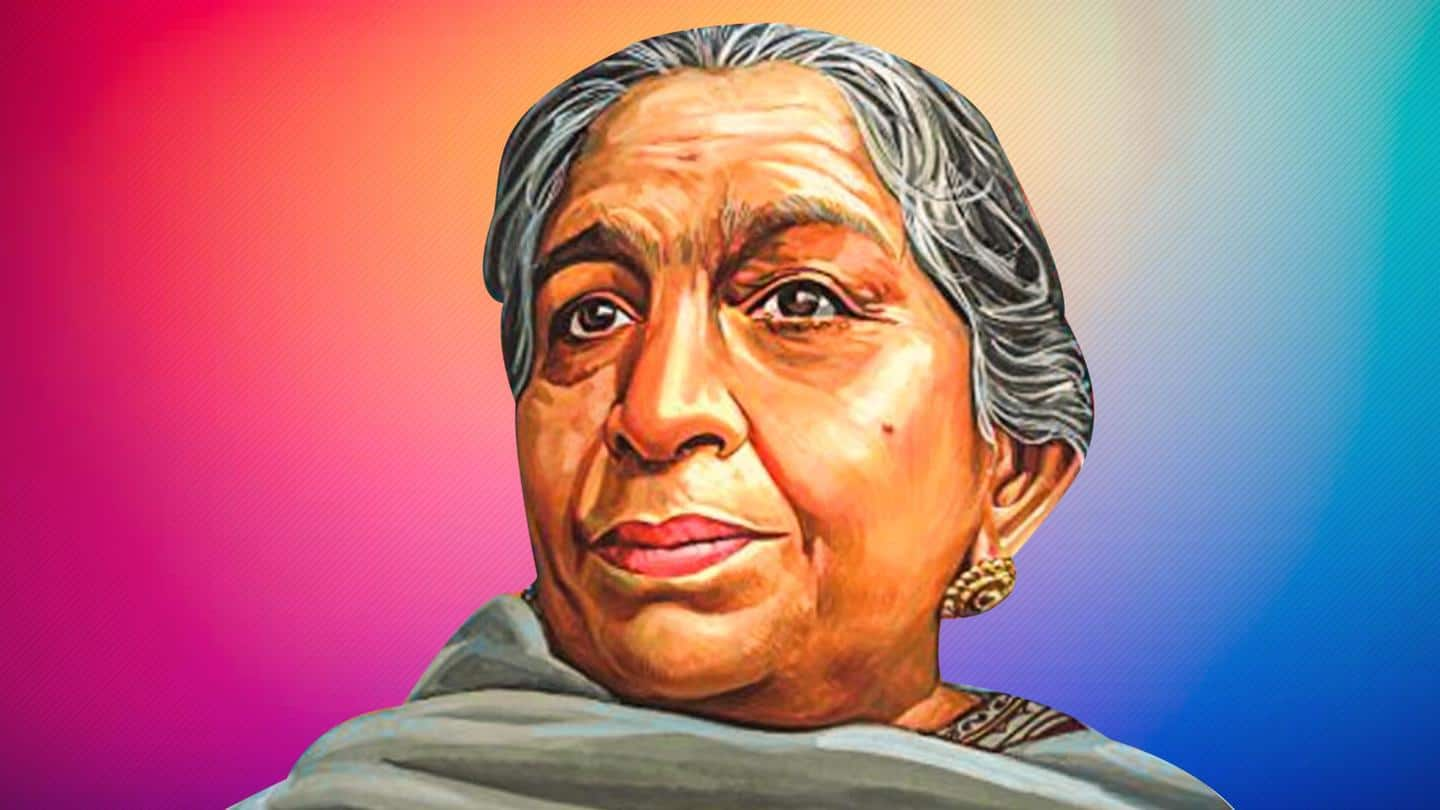
Celebrating 'Swar Kokila' Sarojini Naidu on her 143rd birth anniversary
What's the story
On the 143rd birth anniversary of Sarojini Naidu, who was named the "Nightingale of India" by Mahatma Gandhi for her breathtaking poetry, let us remind ourselves of her achievements. Naidu was the first woman president of the Indian National Congress. Her birthday is celebrated as National Women's Day to recognize all the women of India who changed history and to inspire millions more.
#1
Child prodigy
Naidu wrote a 1,300-line poem called Lady of the Lake in six days at a tender age. At 12, she impressed the Nizam of the Kingdom of Hyderabad with her play Maher Muneer, written in Persian. She was proficient in Bengali, Hindi, English, Telugu, Urdu, and Persian. She studied at the University of Madras, King's College London, and at Girton College, Cambridge.
#2
Personal life
Naidu was born to Dr. Aghore Nath Chattopadhyay and Varada Sundari Devi. Her father was a scientist, philosopher, and educator who founded the Nizam College of Hyderabad, and her mother was a poet. She tied the knot with Dr. Muthyala Govindrajulu Naidu in 1899 in an inter-caste marriage that was termed "groundbreaking and scandalous" at the time.
#3
Literary life
Naidu led an active literary life and attracted notable intellectuals to her famous salon in Mumbai. Her first volume of poetry, The Golden Threshold (1905), was followed by The Bird of Time (1912). In 1914, she was elected a fellow of the Royal Society of Literature. Naidu's collected poems were published under the titles The Sceptred Flute and The Feather of the Dawn.
#4
Role in India's independence struggle
She was one of the many women who fought for India's independence. Naidu was imprisoned multiple times for joining the Civil Disobedience Movement and the Quit India Movement, but she continued to show courage against the British and motivated citizens. Following India's independence in 1947, Naidu was appointed as the governor of present-day Uttar Pradesh, making her India's first woman governor.
#5
Icon of women empowerment
The British awarded Naidu the Kaisar-i-Hind medal in 1929 for her services during the plague pandemic. However, following the Jallianwala Bagh massacre, she returned it. She was passionate about women's independence and worked to raise awareness about it. She founded the Women's Indian Association (WIA)—which helped women acquire the right to vote and occupy the legislative office—in 1917, a great triumph for women.